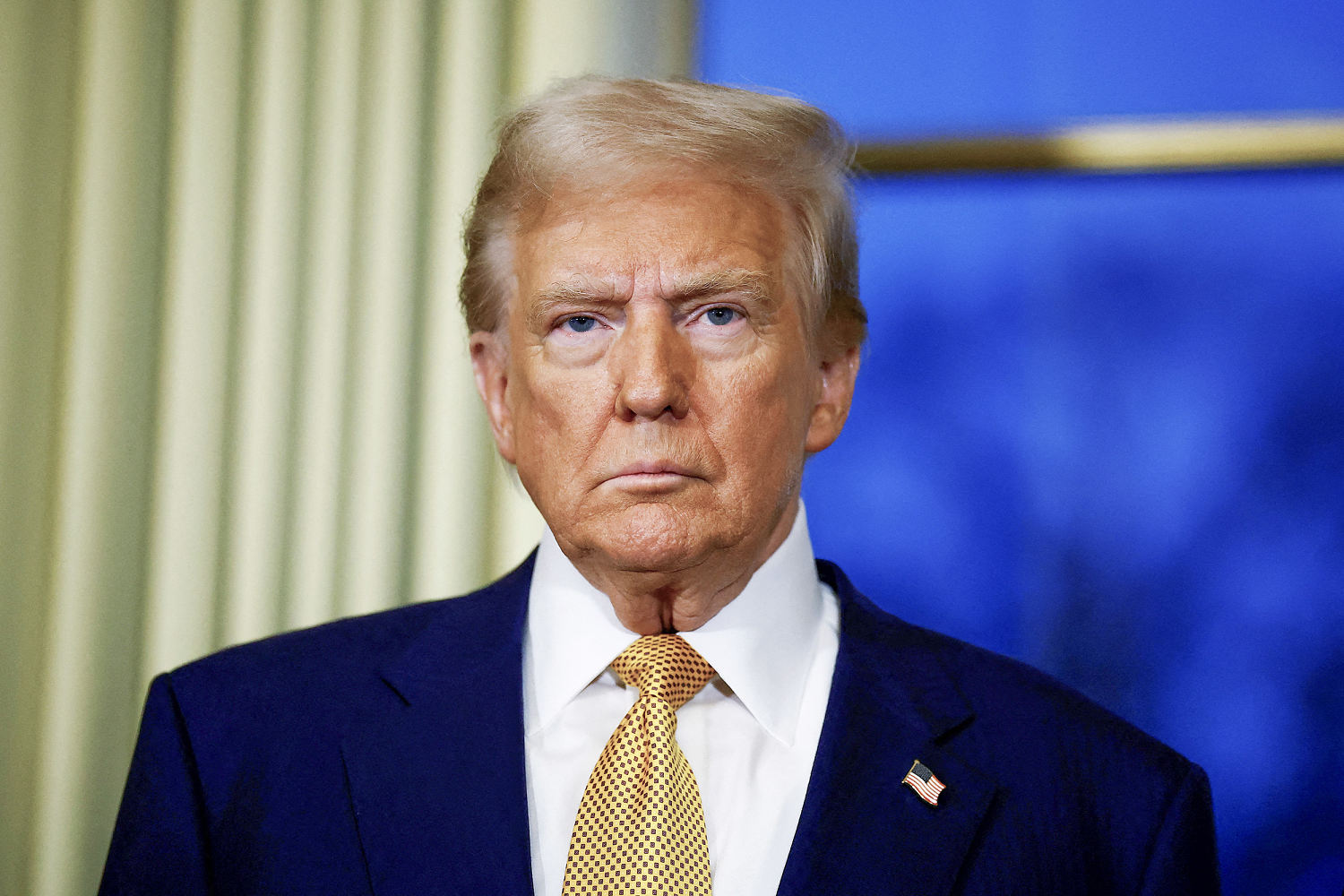
In recent weeks, as Democratic and Republican lawmakers worked on a spending bill that would prevent a government shutdown, there were a handful of core questions that negotiators had to grapple with. Would it include federal disaster aid? How much? What about aid to farmers?
It was against this backdrop that Donald Trump waited until a bipartisan agreement was complete — and until a shutdown deadline was just two days away — at which point he decided to make a new, odd, and wildly unnecessary demand, confusing a whole lot of officials in both parties in the process. Politico reported:
Donald Trump and JD Vance injected themselves further into an escalating fight over federal spending, demanding that House Republicans scrap a plan that would avert a government shutdown within days. Trump and Vance issued a statement Wednesday insisting that Congress raise the nation’s debt ceiling and cut a range of spending proposals instead of passing the package that Speaker Mike Johnson and House Republicans had negotiated with their Democratic counterparts.
The fact that the president-elect jumped in at the last minute to take a sledgehammer to a bipartisan agreement is itself a dramatic problem. But Trump’s decision to also add a debt ceiling increase to the multifaceted mess wasn’t just problematic, it was also bizarre. NBC News’ Sahil Kapur went so far as to characterize it as “mind-boggling“ to see the Republican push a provocative demand that’s wholly unrelated to the ongoing debate.
Democratic Rep. Dan Goldman of New York found it so odd that he told MSNBC’s Lawrence O’Donnell that Trump’s demand “makes absolutely no sense.” The congressman added, in reference to the president-elect, “I’m concerned about his mental capacity.”
Congressional Republicans didn’t go nearly that far, though some GOP lawmakers conceded that they didn’t understand Trump’s 11th-hour demand, either. “This has come as a surprise to me,” Republican Sen. Susan Collins of Maine told reporters. “I was surprised that [Trump] wants to move the debt limit vote up to this year. … I don’t know his rationale.”
In case this weren’t quite enough, the morning after making his strange new demand, the president-elect told NBC News that he’d like to see Congress get rid of the debt ceiling altogether — a goal long sought by progressive reformers and annoying political writers like me.
In a phone interview, Trump specifically said getting rid of the debt ceiling entirely would be the “smartest thing [Congress] could do. I would support that entirely.”
The Republican added, “The Democrats have said they want to get rid of it. If they want to get rid of it, I would lead the charge.”
There’s ample speculation about the president-elect’s motivations, and in the hours following Trump’s comments to NBC News, many Democrats seemed unsure how to respond. It’s equally unclear how Republican lawmakers — who’ve spent years using the debt limit as a partisan cudgel — feel about this latest demand.
But stepping back, there’s no great mystery as to why Trump has stumbled into this. The New York Times reported:
As he prepares to push an agenda of tax cuts and border security, Mr. Trump fears that a debt limit fight next year could interfere. His plans are expected to cost trillions of dollars, much of which will most likely need to come from borrowed funds. A drawn-out debt limit fight next year could force Mr. Trump and Republicans to bow to the demands of Democrats and could consume the congressional calendar.
I think that’s right, though I’d add a related point: Trump is likely terrified of the idea that Democrats might act like him.
Let’s not forget that during his first term, the then-president condemned the idea of using the nation’s debt limit as part of a partisan hostage strategy that threatened the nation. In 2019, for example, Trump declared, “I can’t imagine anybody using the debt ceiling as a negotiating wedge.” In Oval Office comments, he went on to describe the policy as a “sacred thing in our country.”
After he left office, the Republican promptly changed his mind and demanded that GOP lawmakers use the debt ceiling to threaten the Biden White House, even if it put Americans at risk. As recently as last year, CNN’s Kaitlan Collins reminded Trump of his own record, and he responded, “That’s when I was president.”
Collins asked, “So why is it different now when you’re out of office?” He replied, “Because now I’m not president.”
Of course, Trump will soon be president again, and it’s apparently occurred to him that congressional Democrats — who’ve never tried to leverage the debt ceiling for partisan gain — could, at least theoretically, borrow a page from his own playbook.
Evidently, the president-elect would be delighted if Democrats were to simply take such a possibility off the table now, before he’s even inaugurated.
